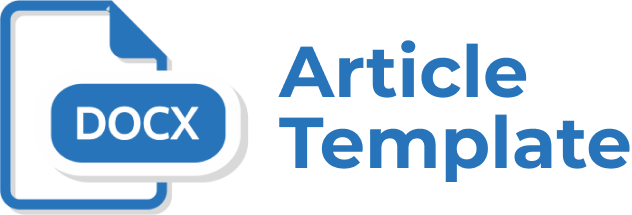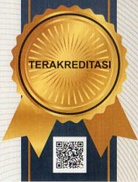Implementasi Skill Passport Bidang Keahlian Tata Boga: Studi Kualitatif di Kalimantan Timur
Abstract
Implementasi skill passport membantu siswa dalam merencanakan dan memantau perkembangan mereka sendiri, tetapi juga memfasilitasi proses evaluasi yang holistik oleh guru dan pihak terkait dalam mengukur pencapaian keterampilan. Tujuan Penelitian adalah untuk mengetahui implementasi skill passport di SMK bidang keahlian tata boga. Metode yang digunakan adalah metode kualitatif. Metode kualitatif deskriptif digunakan untuk memperoleh informasi yang mendalam mengenai implementasi skill passport di SMK. Penelitian ini menggunakan metode kualitatif dengan pengambilan data dari wawancara dengan kepala sekolah, kaprodi, ketua LSP, dan guru produktif di SMK Pusat keunggulan. Hasil penelitian ini menunjukkan para guru telah mengetahui terkait ASEAN Toolsbox yang dikembangkan dari ACCSTP dan CATC. Namun, sebagian besar guru dan SMK belum menerapkan pembelajaran berbasis ASEAN Toolsbox. Faktor penyebabnya yaitu kurangnya pemahaman dan pelatihan tentang ASEAN Toolsbox dan standar ACCSTP; tantangan dalam menyesuaikan kurikulum dengan standar ASEAN, keterbatasan waktu dan beban kerja guru; dan keterbatasan pengetahuan tentang kebutuhan industri dan globalisasi. Selain itu, pelaksanaan uji kompetensi (UKK) di SMK bidang keahlian Tata Boga dilaksanakan melalui Lembaga Sertifikasi Profesi (LSP) 1. Adanya perubahasan skema uji kompetensi siswa SMK yang semula skema klaster berubah menjadi skema kualifikasi dan pada akhirnya saat ini berubah menjadi skema okupasi. Temuan lainnya, implementasi perekaman capaian kompetensi sebagai portofolio siswa di SMK bidang keahlian Tata Boga di Provinsi Kalimantan Timur masih terbatas pada bentuk asesmen capaian pembelajaran mata pelajaran yang dilakukan setiap semester dan hanya sebatas evaluasi penguasaan konten mata pelajaran dan belum mengarahkan evaluasi capaian kompetensi baik berdasarkan SKKNI maupun ASEAN Toolsbox.
Keywords
Full Text:
PDFReferences
Arum, R., & Shavit, Y. (1995). Secondary vocational education and the transition from school to work. Sociology Of Education, 68(3), 187–204.
ASEAN. (2013). ASEAN Mutual Recognition Arrangment (MRA) on Tourism Professionals Handbook. ASEAN.
Badan Pusat Statistik. (2019). Keadaan Ketenagakerjaan Indonesia Agustus 2019. https://www.bps.go.id/pressrelease/2019/11/05/1565/agustus-2019--tingkat-pengangguran-terbuka--tpt--sebesar-5-28-persen.html#:~:text=Youtube-,Agustus 2019%3A Tingkat Pengangguran Terbuka,TPT) sebesar 5%2C28 Persen
Bateman, A., & Knight, B. (2003). Giving Credit, A Review of RPL and Credit Transfer in Vocational Education and Training Sector. National Centre for Vocational and Educational Research (NCVER).
Breen, R. (2005). Explaining cross-national variation in youth unemployment: market and institutional factors. European Sociological Review, 21(2), 125–134.
Butler, P., Anderson, B., Brown, M., Simpson, M., Higgins, A., Northover, M., Meyer, L., Connor, M., Lamont, M., & Wyles, R. (2006). A Review of The Literature on Portfolios And Electronic Portfolios.
Cameron, R. (2011). Australia: An overview of 20 years of research into the recognition of Prior Learning (RPL). In Researching the Recognition of Prior Learning (p. 14‐43).
Demirović Bajrami, D., Terzić, A., Petrović, M. D., Radovanović, M., Tretiakova, T. N., & Hadoud, A. (2020). Will we have the same employees in hospitality after all? The impact of COVID-19 on employees’ work attitudes and turnover intentions. International Journal of Hospitality Management, 102754. https://doi.org/https://doi.org/10.1016/j.ijhm.2020.102754
Eby, L. T., Butts, M., & Lockwood, A. (2003). Predictors of success in the era of the boundaryless career. Journal of Organizational Behavior, 24(6), 689–708. https://doi.org/https://doi.org/10.1002/job.214
Gall, M. D., Gall, J. P., & Borg, W. R. (2003). Educational research: An introduction (7th ed.). Allen and Bacon.
Hamzah, Z., & Kurniawan, I. (2020). Pengaruh Pengetahuan Zakat Dan Kepercayaan Kepada Baznas Kabupaten Kuantan Singingi Terhadap Minat Muzakki Membayar Zakat. Jurnal Tabarru’: Islamic Banking and Finance, 3(1), 30–40. https://doi.org/10.25299/jtb.2020.vol3(1).5114
Hardani, Auliya, Ria dkk, (2023). Buku Metode Penelitian Kualitatif. In Revista Brasileira de Linguística Aplicada (Vol. 5).
Harris, J. (1999). Ways of seeing the Recognition of Prior Learning (RPL): What contribution can such practices make to social inclusion? Studies in the Education of Adults, 31(2), 124–139. https://doi.org/10.1080/02660830.1999.11661407
Haydon, A. P. (1994). Credit Transfer and Recognition of Prior Learning in Australian Universities. Higher Education Series, AGPS.
Joyes, G., Gray, L., & Hartnell-Young, E. (2009). Effective practice with e-portfolios: How can the UK experience inform practice? Proceedings Ascilite Auckland 2009, 486–495. https://www.ascilite.org/conferences/auckland09/procs/joyes.pdf
Jung, H. S., Jung, Y. S., & Yoon, H. H. (2021). COVID-19: The effects of job insecurity on the job engagement and turnover intent of deluxe hotel employees and the moderating role of generational characteristics. International Journal of Hospitality Management, 92, 102703. https://doi.org/https://doi.org/10.1016/j.ijhm.2020.102703
Lee, P. C., Xu, S. (Tracy), & Yang, W. (2021). Is career adaptability a double-edged sword? The impact of work social support and career adaptability on turnover intentions during the COVID-19 pandemic. International Journal of Hospitality Management, 94, 102875. https://doi.org/https://doi.org/10.1016/j.ijhm.2021.102875
Miles, M. B., & Huberman, M. A. (1994). Qualitative data analysis: an expanded sourcebook (2rd ed). Sage Publication.
Miller, A. (2009). The world of e‐portfolio. The Knowledge Tree, 18.
OECD, & ILO. (2014). Promoting Better Labour Market Outcomes for Youth: Report on Youth Employment and Apprenticeships prepared for the G20 Labour and Employment Ministerial Meeting.
Rencana Pembangunan Jangka Menengah Nasional 2020-2024, Pub. L. No. Peraturan Presiden Republik Indonesia Nomor 18 Tahun 2020 (2020). https://perpustakaan.bappenas.go.id/e-library/file_upload/koleksi/migrasi-data-publikasi/file/RP_RKP/Dokumen RPJMN 2020-2024/Lampiran 1. Narasi RPJMN 2020-2024.pdf
Smith, K., & Tillema, H. (2003). Clarifying Different Types of Portfolio Use. Assessment & Evaluation in Higher Education - ASSESS EVAL HIGH EDUC, 28, 625–648. https://doi.org/10.1080/0260293032000130252
Statz, C., Hayward, G., Oh, S., & Wright, S. (2004). Outcomes and processes of vocational learning: A review of the literature. Learning and Skills Development Agency.
Unwin, L., Fuller, A., Turbin, J., & Young, M. (2004). What determines the impact of vocational qualifications? A literature review. http://webarchive.nationalarchives.gov.uk/20130401151715/http://www.education.gov.uk/publications/eOrderingDownload/RR522.pdf
Wheelahan, L., Dennis, N., Firth, J., Miller, P., Newton, D., Pascoe, S., & Brightman, R. (2003). Recognition of Prior Learning: Policy and Practice in Australia. Southern Cross University.
Wolf, A. (2011). Review of vocational education: The Wolf report. https://doi.org/10.1037/h0066788
DOI: https://doi.org/10.32487/jshp.v9i1.2462
Refbacks
- There are currently no refbacks.
JSHP: Jurnal Sosial Humaniora dan Pendidikan
is licensed under a Creative Commons Attribution-ShareAlike 4.0 International License (CC BY-SA 4.0)





